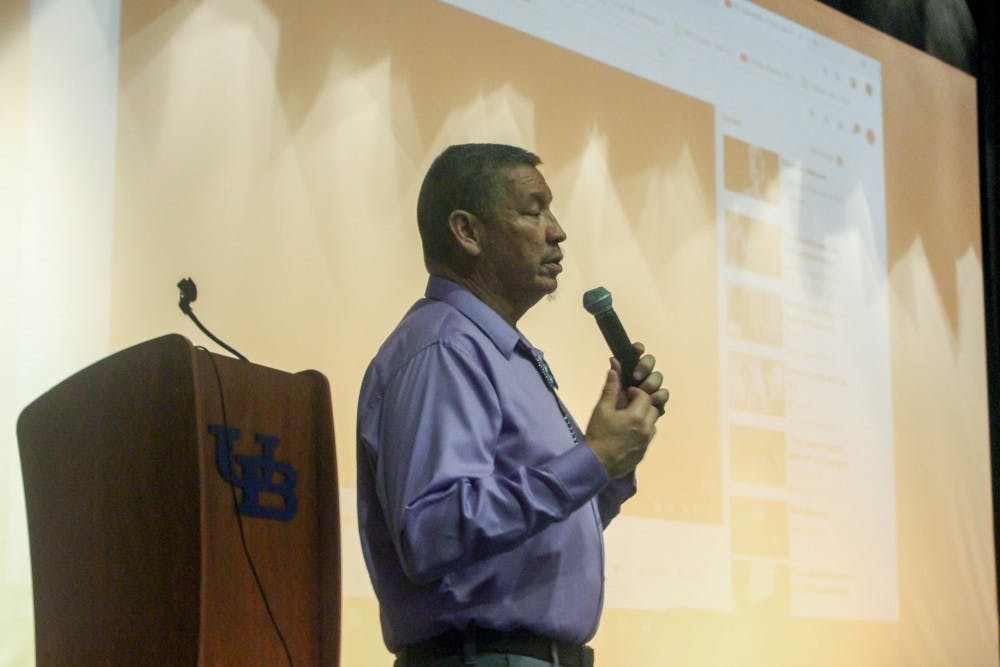The Native American Community Services’ “All Our Relations” Project and the Outdoor Adventure Club hosted a screening of a new documentary, “The Eagle and the Condor: From Standing Rock with Love,” at the Student Union Theater on Monday.
The screening was used to recognize Indigenous Peoples’ Day, which celebrates the culture and history of indigenous people.
Documentarian Kahsto’sera’a Paulette Moore tells the story of different pipeline protesters at Standing Rock Indian Reservation. The protesters, referred to in the film as “water protectors,” describe their peaceful efforts against the construction of the Dakota Access Pipeline.
Many considered the pipeline a threat to the area’s clean water and sacred grounds. Thousands defended the land, which sparked national and international attention.
The documentary’s focus of humans’ connection to the environment is prominent. The film presents the idea that we should respect it and be just as connected to the environment as we are to other people.
The presentation of the documentary reflected on the idea of connection. Through the broadcasting host, Free Speech TV, viewers in Buffalo watched at the same time as the documentary premiered in Chicago and other locations. Afterwards, via Facebook Live, viewers were able to get in contact with Moore.
Pete Hill, the project director of “All Our Relations” from the Native American Community Services, discussed the importance of the observation of Indigenous Peoples’ Day. He stated that the culture of indigenous people is rich and beautiful, yet communities are facing many troubles.
“What a lot of native people are really recognizing is our connections to the natural world. It’s also recognizing other gifts that the natural world has given to all of us, every human being,” Hill said. “When people base their perspectives on love and respect of having those good minds, we can speak up. We can say things that need to be said. We say it in a way where people hear.”
Hill explained that each native event acknowledges what people should be thankful for.
During the film, featured protestors like Sara Juanita Jumping Eagle, Canupa (pipe) carrier Grandmother Theresa BlackOwl and Rebecca Kemble described the sense of unity brought about by their peaceful efforts. Indigenous nations united together through their protection protests. The documentary’s title represents this connection.
An eagle represents North American nations, while a condor symbolizes Central and South American nations. Their connection to the land and each other, the film explained, maintained strength in the face of adversity.
Taylor Greene, an OAC member and anthropology major, described how OAC takes steps to respect the environment. He discussed the club’s adherence to “leaving no trace,” which “is very important to us, because if we take care of the land we’ll be able to use it more.”
The documentary served as a tool for discussion and education about native cultures and the issues they face in the modern world.
“If we come together and sit down with a good mind, with respect, and share and teach each other what we all learn, I think that’s the way we can always move forward in a good way.” Hill said. “At the end of the day, we’re all part of the human family, we all have so much in common with each other.”
The event ended with a public discussion of about the film and a traditional Kanienkehaka (Mohawk) closing.
Julianna Tracey is a contributing writer and can be reached at arts@ubspectrum.com
Julianna Tracey is a music theater and history major and The Spectrum's senior arts editor.





